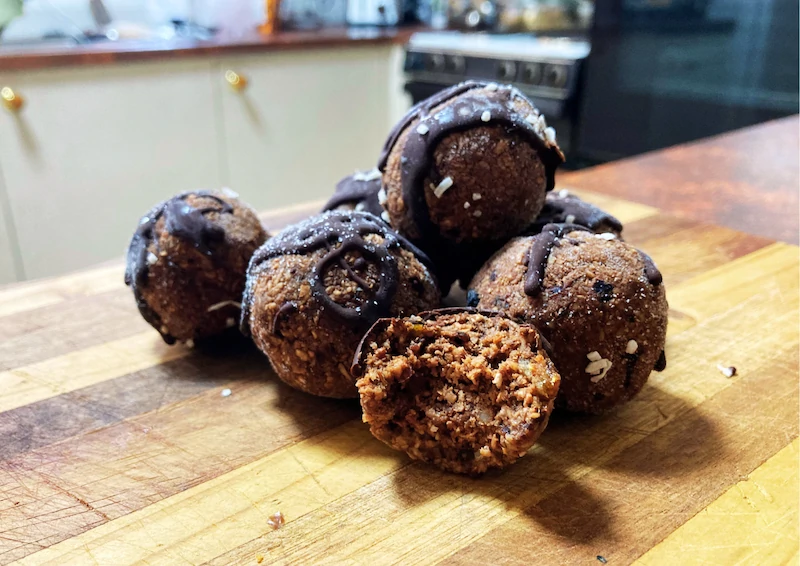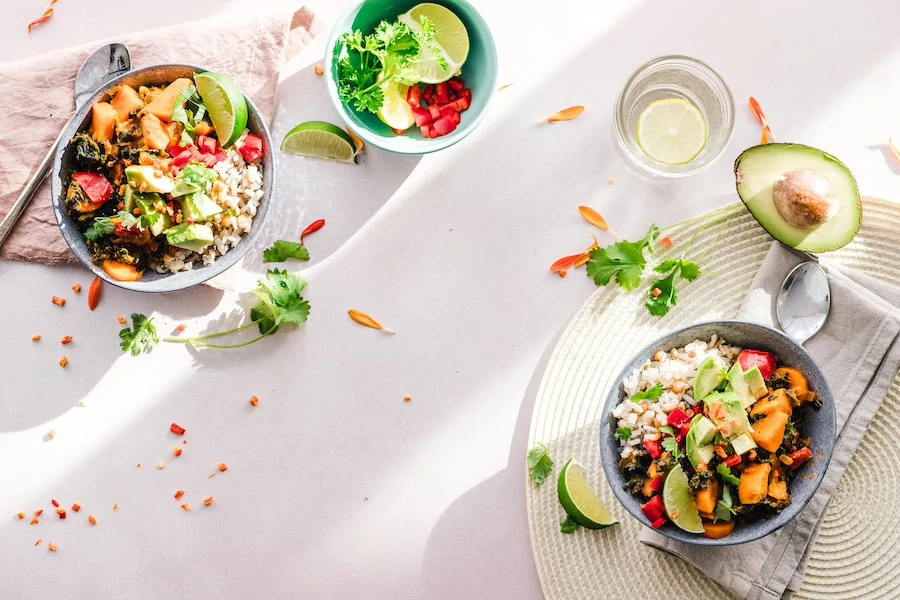Bamboo sheets are some of the softest and most comfortable bed sheets you can buy. I love having them in my bedroom, so I’ve created a guide on the best way to care for your bamboo sheets.
So how do you wash bamboo sheets? Bamboo sheets should be separately washed in cold water on a gentle cycle using non-toxic detergent. Avoid using hot water as this can cause pilling or shrinking. If possible, they should be air-dried on a line in direct warm sunlight.
Washing your bamboo sheets is a simple process, but should be done correctly and with care to ensure the longevity of your sheets. There are also some simple things you can watch out for to avoid damaging your new bamboo sheets.
Table of Contents
ToggleHow Do You Wash Bamboo Sheets? Here Are 5 Helpful Tips!
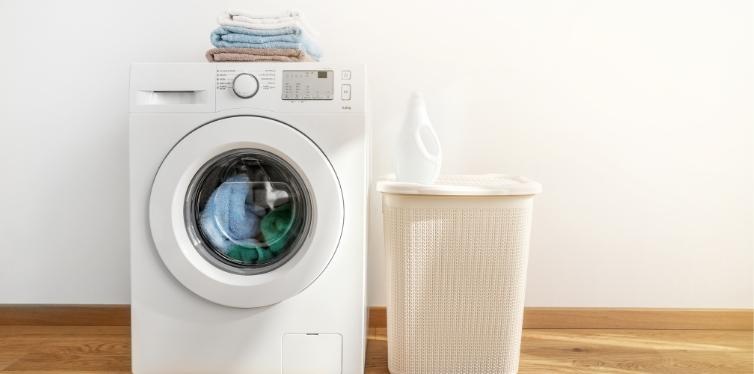
It’s recommended that you wash your bamboo sheets a minimum of once a week during the winter and every 4-5 days in the summer as you may produce more sweat. Here are some basic machine-washing guidelines:
Wash in Cold Water
Always wash using cold water on a gentle cycle at a maximum of 85F (30C) on a high water level option (if available). If you use hot water, you run the increased risk of fabric pilling. Since bamboo has natural antibacterial properties, there is no need for hot water which can also cause shrinking.
Wash Separately
Wash your sheets separately from any items with zippers or rough fabrics such as denim, as they can cause pilling and abrasions to your sheets. Also, avoid including any towels and blankets as they will add a buildup of lint.
Use an Eco-Friendly Detergent
Make sure it is all-natural and biodegradable. There are many eco-friendly options on the market, but we prefer anything that’s organic and biodegradable. If you use a powder-based detergent, make sure it dissolves before tossing your bamboo sheets into the wash.
Avoid Products With Chemical
Do not use bleach, brighteners, or fabric softeners as they all contain many chemicals that will break down the composition of your sheets over time. If you have any pesky stains, you can apply an eco-friendly stain remover before washing, which can really make a difference in making your bamboo sheets last a long time. Fabric softener is not necessary, as bamboo sheets are already very soft and should maintain their soft texture when properly cared for.
Brightening
If you really want to brighten your sheets, you can make an eco-friendly mild homemade bleach solution by adding 1/2 cup (118ml) baking soda to the wash cycle and 1/2 cup of vinegar during the rinse cycle. Note that this method is for brightening light-colored sheets and can have the opposite effect on dark colors.
3 Simple Drying Instructions for Bamboo Sheets
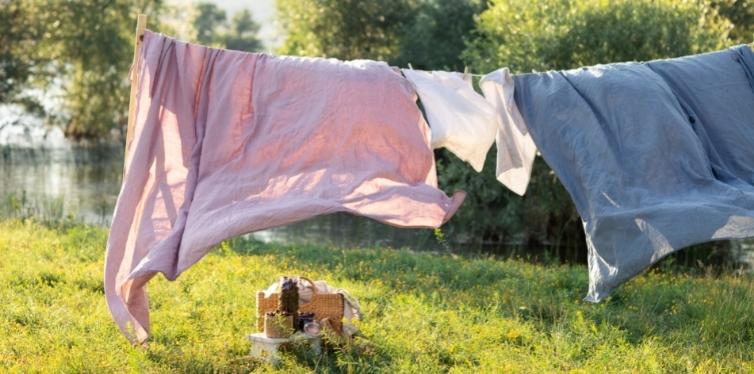
When you take your bamboo sheets out of the wash, they may feel rather stiff than usual, but don’t worry, this is normal! They will return to their original softness after fully drying. Bamboo sheets can be safely machine dried or air-dried. You choose which method works best for you. Here are some basic drying guidelines:
1. Air Drying
This is the best overall drying method to ensure the life and quality of your by preserving the colors, fibers, and elasticity. Hang dry along a line in warm sunlight starting in the morning if possible, as they will take a whole day to fully dry. Your sheets may have some wrinkles after air drying, but they will go away with time. You can also throw them in the dryer on low heat for just a few minutes to remove any wrinkles or finish off any excess moisture.
2. Dryer
Dry your bamboo sheets on a low heat and low tumble setting. Take your sheets out as soon as possible to avoid any wrinkling. Avoid using dryer sheets as they contain chemicals. A great option is organic dryer balls, which are an excellent eco-friendly alternative to standard dryer sheets.
3. Ironing
If you are serious about having crisp bed sheets, bamboo sheets are safe to iron. Keep the iron at a low-steam temperature to avoid putting too much heat on the fabric. Avoid using any anti-wrinkle agents or starches which may contain chemicals.
Storing Your Bamboo Sheets
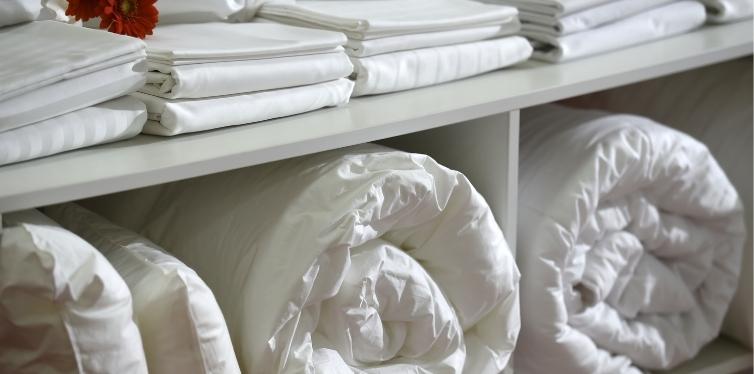
Store all of your bamboo linens in a cool and dry place away from direct sunlight. Make sure they are fully dry before folding and storing away, to avoid any moisture build-up leaving an unpleasant musty smell.
Avoid storing them in plastic or cardboard containers, as this will not be very breathable for the fabric. Cardboard can transfer acid into the fabric over time. Gently fold your sheets to avoid any excess wrinkling, regardless of the thread count of your bamboo sheets.
Replacing your Bamboo Sheets
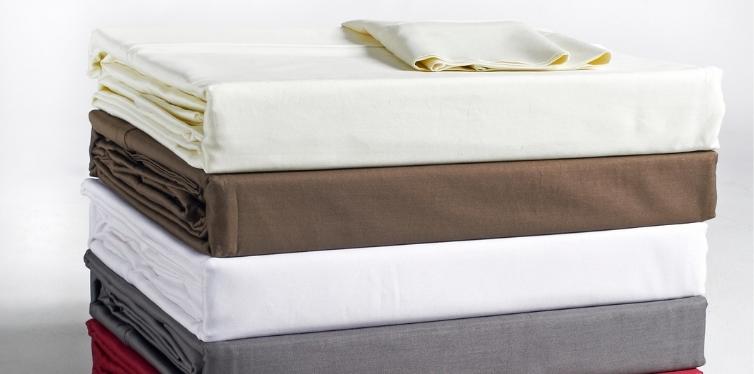
Depending on how often you use them, bamboo sheets can last up to 12-18 months with daily use. One way to make your sheets last longer is to have multiple sets available. Rotating between 4-5 different sheets can expand their lifespan up to 1-2 years longer, as you will not be washing them as frequently. While one is washing the others can be stored and ready for use.
Unfortunately, even the most high-quality bamboo sheets will reach the day that you need to replace them. When you notice any fraying, pilling, or unremovable stains on the fabric, it’s time to change them out. It’s recommended that you change your pillowcases and duvet covers more frequently, as the oils from your hair, skin, and makeup will come into contact with the fabric when you sleep.
Why Use Bamboo Sheets
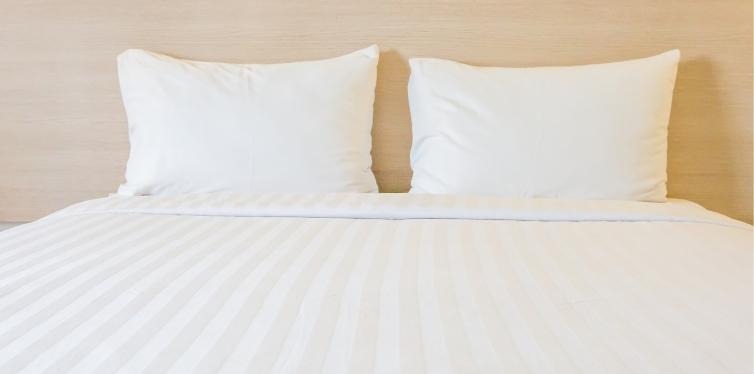
If you are on the fence about bamboo sheets or just curious as to why people are using them, here are simple reasons why you can swap them out for your cotton sheets:
Comfort – your bedsheets should be comfortable enough to enjoy a full night’s sleep. Bamboo fabric is incredibly soft to the touch and even softer than cotton. It’s more breathable it won’t trap excess heat so you’ll stay cool and comfortable throughout the night.
Durability – bamboo sheets are more durable than traditional cotton sheets. The long bamboo fibers are stretched across the length of the sheet, rather than short fibers that are interwoven together. This makes them stronger and less likely to tear or pill. Bamboo fibers will also absorb fewer oils and sweat from your skin so they will last longer with less discoloring than cotton.
Healthy – bamboo fabric is more antibacterial when compared with cotton. It will also absorb less moisture which means fewer bacteria, making your sheets smell better and stay cleaner.
Chemical-Free – unlike cotton, bamboo does not need any chemicals or pesticides to grow. This means zero toxic chemicals and zero environmental impact from the use of pesticides.
Renewable Resource – bamboo is the fasting growing plant in the world making it one of the most eco-friendly and sustainable materials out there.
Final Thoughts
The production processes of bamboo fabrics can vary. If you are looking for a fabric that is produced with the environment in mind, look for bamboo sheets made from bamboo linen or bamboo lyocell which both have a limited environmental impact in their production.
There is no doubt that bamboo sheets are more expensive than conventional cotton ones. It’s important to keep in mind that you will be using a fabric that is made from a sustainable and renewable resource – bamboo. Whether you are in the market for the best bamboo sheets, or you are already a happy owner, I hope this washing and care guide has been helpful to you and I wish you a soft, cozy, and comfortable night’s sleep!

